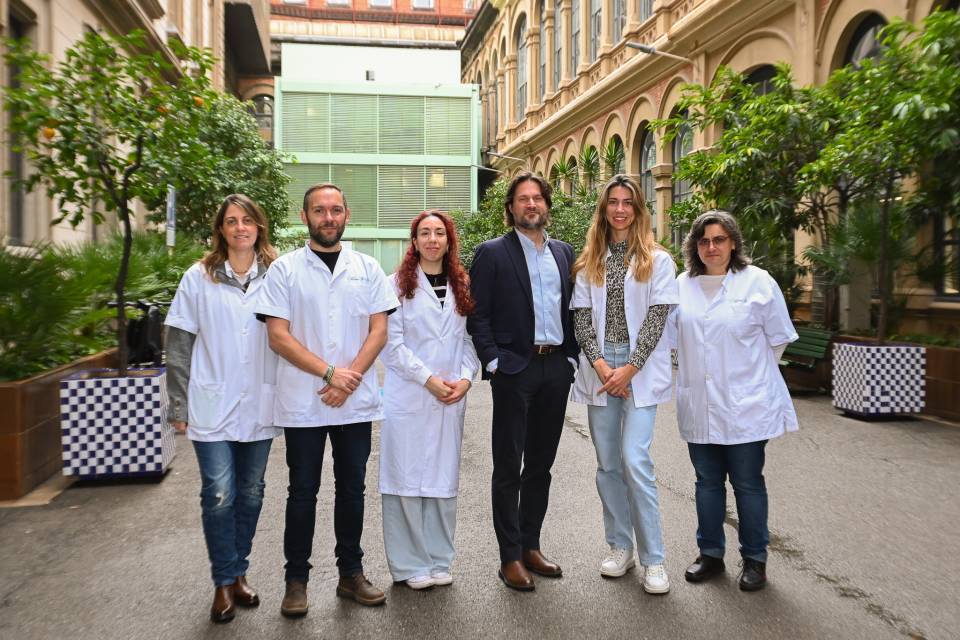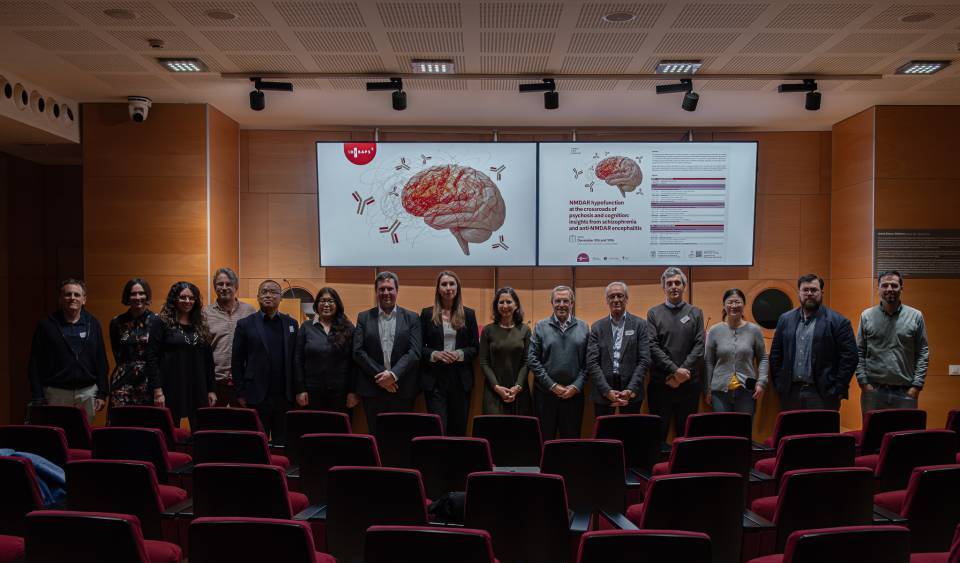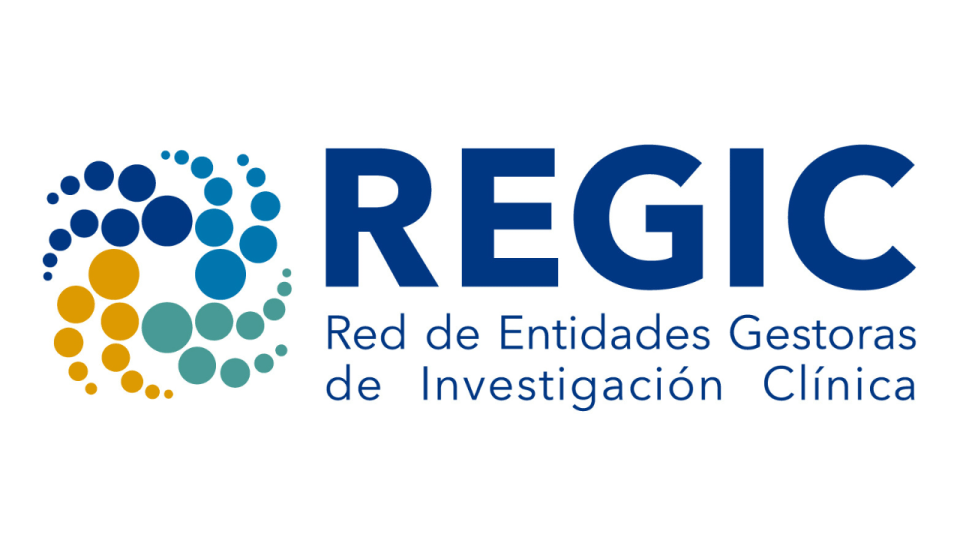Simon Perera and Sergi Castellví: “Research is a reflection of society. In a cis-heterocentric society, research is also cis-heterocentric"
November 18 is the International Day of LGBTQIA+ People in STEM (Science, Technology, Engineering and Mathematics). The PRISMA Association, of which Simon Perera and Sergi Castellví are members, works, among other things, to prevent discrimination and enhance the visibility of the LGBTQIA+ community in these disciplines.
Simón Perera is general secretary of PRISMA, director of business development at ProtoQSAR, and co-director of BCNspiracy and the exhibition project An LGBTI+ Gaze, as well as being a member of various associations engaged in scientific communication and dissemination.
Sergi Castellví is a member of PRISMA and head of the IDIBAPS research group on Genetic predisposition to gastrointestinal cancer.

PRISMA is the Association for Affective-Sexual and Gender Diversity in Science, Technology and Innovation. Its work focuses on building a support community for LGBTQIA+ people working in these fields, enhancing the visibility of LGBTQIA+ people, providing scientific data and evidence to respond to discriminatory actions, and promoting a perspective that includes diversity in practices and methodologies at both academic and business level.
In the society we live in, most people are assumed to be cis-heterosexual men or women. In fact, some say that cis-heterocentrism has maintained the union of sexuality, reproduction and affection between people in order to strengthen the model of male domination over women, or heteropatriarchal model. As a result, other relational and gender realities, such as those affecting lesbian, gay, non-binary or trans people, are often ignored. As a reflection of society, science is also cis and heterocentric, especially research in the fields of the natural or biomedical sciences. Such research tends to be cis-heterocentric, failing to take LGBTQIA+ diversity into account.
For example, a few years ago a major genetic study (known as GWAS) was conducted with a view to investigating genetic factors involved in human sexual orientation (a concept that includes heterosexual, bisexual and homosexual orientation, among others). Its goal was to achieve a better understanding of human diversity from a genetic point of view. However, communication in scientific journals and the press emphasised the genetics of non-heterosexual orientations, focusing on LGBTQIA+ people in a scientifically unjustified way.
In the society we live in, most people are assumed to be cis-heterosexual men or women, and other relational and gender realities are ignored.
In scientific studies, to ensure that research is not cis-heterocentric, just as the female perspective needs to be taken more into account, LGBTQIA+ realities should also be given consideration. Moreover, it is important not to pathologise trans people. Research is needed into the priority issues for LGBTQIA+ people, and when affective, sexual and gender diversity is investigated, the focus should not be on the possible biological or genetic causes that make people LGBTQIA+: such research is unnecessary and may stigmatise this community.
Yes, as we say, it is important to include the LGBTQIA+ perspective. Gender equality is the first step towards an inclusive science that respects equality and diversity. So we need to expand and embrace perspectives such as that of LGBTQIA+ people, racialised people, people with functional diversity and so on, so that science ceases to be based on the vision of well-off, white, Western, cisgender men with no physical or mental limitations, and begins to include the perspectives of all people.
Science must cease to be based on the perspective of well-off, white, Western, cisgender men with no physical or mental limitations.
In recent years, we have seen that in neighbouring countries such as the United States and the United Kingdom, LGBTQIA+ scientists have experienced LGBTQIA+-phobia and discrimination at work, particularly women and trans and non-binary people.
People affected report finding themselves in hostile environments at work, where, for instance, jokes are made about the identity of LGBTQIA+ people. The result is that LGBTQIA+ people cannot be themselves or stay in the closet at work more often, with the consequent mental health problems. There are also cases of discrimination at work and people not hired because they are LGBTQIA+. Some people suffer even more serious and violent harassment or attacks because of their sexual identity or orientation. As we mentioned, this is more accentuated in the case of women and trans and non-binary people.
Some GBTQIA+ scientists experience LGBTQIA+-phobia and discrimination at work or are not even hired due to their sexual orientation.
There are a lot of things that can be done. PRISMA, for example, has established ten measures: promoting inclusive training and education on LGBTQIA+ issues at research centres; establishing safe channels for reporting attacks, discrimination and harassment; ensuring equal opportunities for access to jobs; establishing protocols and guidelines for managing the transition process of transgender people in the workplace; avoiding binary gender classifications (e.g. by introducing inclusive bathrooms, expanding gender boxes on forms and so on); rejecting pseudo-scientific discourses that discriminate against LGBTQIA+ people (e.g. conversion therapies); making LGBTQIA+ references visible in research centres; taking an intersectional perspective that includes all LGBTQIA+ people; and promoting research into subjects important to LGBTQIA+ people, avoiding gender or cis-heterocentric bias. It is not a question of just taking “cosmetic” actions, such as hanging the rainbow flag on June 28, but of making deeper changes that can really help the cause of LGBTQIA+ equality.
They should fund research that focuses on LGBTQIA+ people, that investigates issues important to LGBTQIA+ people, prioritising it over other research such as that into biological or genetic bases, which can lead to the stigmatisation of LGBTQIA+ people. LGBTQIA+ people should also be included in these administrations and organisations in order to advise on what issues are important to their community, in the same way that we try to achieve equality for women in all areas of our lives, and citizens’ views are included in biomedical research projects, for instance. It might even be a good idea to establish some kind of quota or to promote the presence of LGBTQIA+ people in institutions in the same way as occurs for women and is recommended for racialised people and people with functional diversity. Our society needs to include and listen to the full diversity of people that form part of it.
It is not enough to take merely “cosmetic” actions, such as hanging the rainbow flag on June 28; we need deeper changes that can really help the cause of LGBTQIA+ equality.
Relevant literature is beginning to emerge. Here are some examples:
Walker C. Equality: Standing out. Nature 2014 Jan 9;505(7482):249-51. doi:10.1038/nj7482-249a. PMID: 24409476.
Waldrop MM. Diversity: Pride in science. Nature 2014 Sep 18;513(7518):297-300. doi: 10.1038/513297a. PMID: 25230630.
Freeman J. LGBTQ scientists are still left out. Nature. 2018 Jul;559(7712):27-28. doi: 10.1038/d41586-018-05587-y. PMID: 29968839.
Barres B, Montague-Hellen B, Yoder J. Coming out: the experience of LGBT+ people in STEM. Genome Biol. 2017 Apr 4;18(1):62. doi: 10.1186/s13059-017-1198-y. PMID: 28372568; PMCID: PMC5379691.
Smith DK. A personal matter? Matter 2019;1(6):1439-1442, https://doi.org/10.1016/j.matt.2019.10.021
Merad M, Posey AD Jr, Olivero O, Singh PK, Mouneimne G, Li L, Wallace LM, Hayes TK. Diversity Is a Strength of Cancer Research in the U.S. Cancer Cell. 2020 Sep 14;38(3):297-300. doi: 10.1016/j.ccell.2020.08.018. PMID: 32931736; PMCID: PMC7489360.
Cech EA, Waidzunas TJ. Systemic inequalities for LGBTQ professionals in STEM. Sci Adv. 2021 Jan 15;7(3):eabe0933. doi: 10.1126/sciadv.abe0933. PMID: 33523910; PMCID: PMC7810386.
Armada-Moreira A, Cizauskas C, Fleury G, Forslund SK, Guthman EM, Hanafiah A, Hope JM, Jayasinghe I, McSweeney D, Young ID. STEM Pride: Perspectives from transgender, nonbinary, and genderqueer scientists. Cell. 2021 Jun 24;184(13):3352-3355. doi: 10.1016/j.cell.2021.05.043. PMID: 34171316.
Chen S. Coming out at work: transgender scientists share their stories. Nature. 2023 Jun;618(7966):871-873. doi: 10.1038/d41586-023-01908-y. PMID: 37336966.



